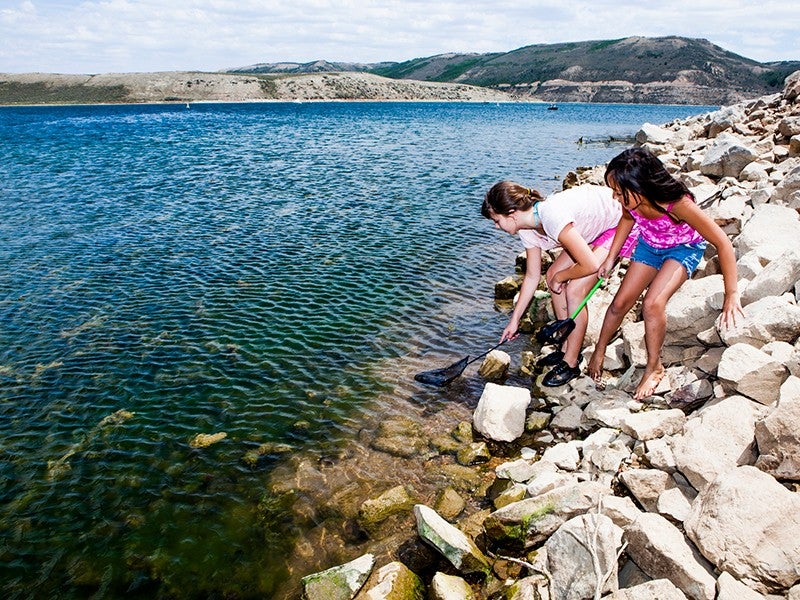Tribes and Environmental Groups Sue Trump Administration to Preserve Clean Water Protections
The administration’s latest attempt to undermine the Clean Water Act would jeopardize tribal and state rights to protect their water quality
Contact
American Indian and Alaska Native federally recognized Tribes and environmental groups, represented by Earthjustice, sued the Trump administration over its attempt to weaken clean water protections. The rule changes proposed by the Environmental Protection Agency would force states and Tribes to accept damaging and unwanted pipelines and other fossil fuel projects on their lands. The EPA reverses its long-standing interpretation of Section 401 of the Clean Water Act in a move that is contrary to the language, purpose, and intent of the statute.
The lawsuit filed seeks to protect tribal and state water quality, and to prevent the EPA from allowing dangerous levels of pollution that would harm the health of families. This rule change is being adopted explicitly to support the fossil fuel industry.
“In order to maintain the Suquamish Tribe’s values and traditions, we will take action to protect, maintain, and preserve our ancestral waters that have supported subsistence, cultural, and commercial uses since time immemorial. This rollback has a direct effect on our tribal community and the next seven generations or more,” said chairman of the Suquamish Tribe and president of Affiliated Tribes of Northwest Indians, Leonard Forsman.
“Pyramid Lake Paiute Tribe works incredibly hard to protect its tribal waters, adopting protective water quality standards over a decade ago,” said chairman of the Pyramid Lake Paiute Tribe, Anthony Sampson, Sr. “These changes that cut into the Tribe’s ability to protect its waters and fish harm us all.”
“Our nation values clean water and healthy communities. We will stand up to the Trump administration’s reckless giveaway to corporate polluters,” said Columbia Riverkeeper executive director, Brett VandenHeuvel.
“This unlawful rollback from the Trump administration seeks to trample the rights of Tribes and states to review and reject dirty fossil fuel projects that threaten their water. We will keep fighting until our government puts people before polluters and protects clean water for every community,” said Earthjustice staff attorney Moneen Nasmith.
“We filed this suit to stop the Trump administration from giving control of our water to the polluting corporations who put their profits over our health. Since Trump’s EPA is taking away states’ and Tribes’ ability to protect their clean water, we’re going to court to take it back,” said Sierra Club senior attorney Nathan Matthews.
Under Section 401 of the Clean Water Act, states and Tribes have the authority to place conditions on federal projects that degrade lakes, streams, rivers, and wetlands within their borders — or to reject them altogether.
The Trump administration’s new rule seeks to undermine that authority in several ways:
- It artificially limits the scope of a state’s or Tribe’s review, guaranteeing that harmful water pollution impacts will be allowed.
- It shifts the burden onto states and Tribes to show that a project will cause harm to water quality, instead of keeping the burden on projects to show that water quality standards will be met.
- It limits the time a state or Tribe has to review a project’s impacts and arbitrarily limits the time to review projects.
- It allows federal oversight of state and tribal determinations, signaling the death of the partnership between the federal government, states, and Tribes enshrined in the Clean Water Act.
The lawsuit comes after President Trump signed an executive order in April 2019 directing the Environmental Protection Agency to revise guidance and issue new regulations for Section 401. Earthjustice, working with conservation and community groups, sent a letter to EPA objecting to the Trump administration’s efforts to undercut states’ and Tribes’ authority to protect water quality and filed comments opposing the proposed rule.
Dozens of state attorneys general and Tribes also voiced similar objections.
Earthjustice is representing the Suquamish Tribe, Pyramid Lake Paiute Tribe, Orutsararmiut Native Council, Columbia Riverkeeper, and Sierra Club in this suit.
Background on Section 401 of the Clean Water Act
The Clean Water Act is one of our nation’s bedrock environmental laws. Congress passed this popular law in 1972 to “restore and maintain the chemical, physical, and biological integrity of the Nation’s waters.”
To protect water quality, section 401 of the Clean Water Act creates a state-tribal-federal partnership, giving individual states and eligible Tribes the ability to review the impacts of many different types of federally licensed projects on waterways and wetlands within their borders.
States and eligible Tribes have up to one year to issue, condition, deny, or request more information regarding water quality and environmental harm from a proposed project. Some projects have the potential to significantly degrade local and state water quality by, for example, cutting trenches through hundreds of waterways, damming rivers, or destroying acres of wetlands.
States and Tribes review hundreds of 401 certification requests annually, allowing for better protection of water resources for all uses, including drinking water, commercial, tribal, and recreational fishing, swimming, critical wildlife habitat, and outdoor recreation.

Additional Resources
About Earthjustice
Earthjustice is the premier nonprofit environmental law organization. We wield the power of law and the strength of partnership to protect people's health, to preserve magnificent places and wildlife, to advance clean energy, and to combat climate change. We are here because the earth needs a good lawyer.